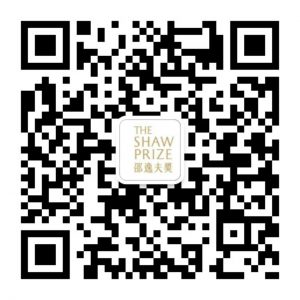for her mapping the first breast cancer gene. Using mathematical modeling, King predicted and then demonstrated that breast cancer can be caused by a single gene. She mapped the gene which facilitated its cloning and has saved thousands of lives.
The Shaw Prize in Life Science and Medicine 2018 is awarded to Mary-Claire King, American Cancer Society Professor, Departments of Medicine and Genome Sciences at the University of Washington, USA, for her mapping of the first breast cancer gene. Using mathematical modeling, King predicted and then demonstrated that breast cancer can be caused by a single gene. She mapped the gene which facilitated its cloning and has saved thousands of lives.
King has spent most of her career addressing the epidemiology of cancer. A remarkable insight launched her efforts. It was well known that there are differences between populations in the incidence of the identical cancer. While other scientists did not pay particular attention to this fact, King surmised that there must be a gene involved and a genetic strategy could be successful to discover it. She committed to this line of attack despite overwhelming skepticism from cancer researchers. Breast cancer is a common complex disease, and the prevailing view was that such diseases arise from interactions among multiple genetic and environmental factors. But Mary-Claire was intrigued by hints that there might be inherited forms of the disease and beginning in 1974, long before there were genomic tools for human genetic analysis, she tested this head-on by studying over 1500 families in which multiple members were affected by breast cancer. Using a mathematical approach, she predicted that clustering of cases could be best explained by the presence of a disease gene in about ~ 4% of families. She also used data from young and old affected and unaffected individuals and predicted that among women carrying mutations in the gene, the risk of breast cancer was about 80% by age 70 whereas the risk decreased to 8% among women without the susceptibility allele. The field was quite skeptical about her mathematical model so she set out to show that indeed there is a breast cancer gene by locating in, physically to its chromosomal home. She worked with families with especially high incidence of breast cancer. Using linkage analysis, King mapped the gene, which she named BRCA1, to human chromosome 17 (band q21) in 1990.
Breast cancer is a common complex disease, and until Mary-Claire King’s work, the prevailing view was that such diseases arise from interactions among multiple genetic and environmental factors. But she was intrigued by hints that there might be inherited forms of breast cancer and beginning in 1974, long before there were genomic tools for human genetic analysis, she tested this head-on by studying more that 1500 families, each identified through one woman with breast cancer. Using a mathematical approach, she determined that clustering of breast cancer in these families occurred more frequently than expected by chance, and that this clustering could be best explained by the presence of mutations in an unknown gene that greatly increased risk in about 4 % of families. By studying patterns of breast and ovarian cancer in families, she predicted that among women carrying mutations in this hypothetical gene, the risk of breast cancer would be about 80% by age 70, ten times more than among women in the same families without any mutation in this hypothetical gene.
The field was skeptical about her mathematical model so she set out to prove that her hypothetical gene existed, by mapping it to an exact chromosomal location. Toward this end, King analyzed DNA from hundreds of women in 23 families very severely affected with breast cancer. In many of these families, breast cancer struck young women, often in both breasts, and in some families, breast cancer even occurred in men. Finding the home of the hypothetical gene was difficult for multiple reasons. First, most cases of breast cancer are not familial. Might the critical mutations be inherited from unaffected fathers as well as from mothers with the disease? Second, breast cancer is common, so common that both inherited and non-inherited cases could occur in the same families. Third, breast cancer might not strike all women who carry a high-risk gene; some might be fortunate. And fourth, different families might carry different high-risk genes. No one had previously tackled such complexities, and an attempt to unearth a breast cancer gene seemed woefully naïve.
Mary-Claire King was born in 1946 in Chicago, Illinois, USA and is currently the American Cancer Society Professor, Departments of Medicine and Genome Sciences at the University of Washington, USA. She obtained her Bachelor’s degree in Mathematics from Carleton College, Northfield, Minnesota, USA in 1966 and received her PhD in Genetics from the University of California, Berkeley, USA in 1973. She was a Postdoctoral Fellow at the University of California, San Francisco, USA (1974–1976). From 1976 to 1995, She joined the University of California, Berkeley, where she was successively Assistant Professor, Associate Professor and Professor of Genetics in the Department of Molecular and Cell Biology / Epidemiology in the School of Public Health. Since 1995, She has been an American Cancer Society Professor of Medicine and Genome Sciences at the University of Washington. She is a member of the US National Academy of Sciences, the US National Academy of Medicine and the American Academy of Arts and Sciences.
